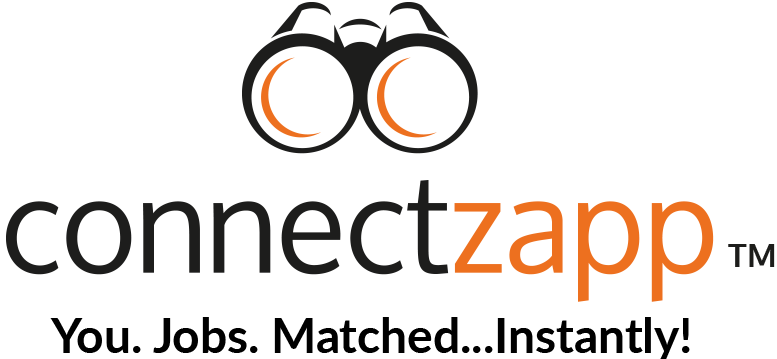Job Recruitment – The pros and cons of using a recruitment agency

Job Recruitment
The Pros And Cons Of Using A Recruitment Agency
What Is Recruitment?
A recruitment firm helps companies find staff.
There are 2 types of recruiters: internal recruiters and agency recruiters.
An internal recruiter works inside a company. They will look for candidates to fill a job within the company first, then if that isn’t successful, they’ll look outside the company. An internal recruiter is an employee of the company they place staff for.
Agency recruiters work at a job recruitment agency and perform recruitment for multiple companies and clients.
Recruitment companies offer job seekers their recruitment services (also called head hunting) to help them find a job. When they place you in a job, your new employer pays the recruiter their fee for finding you.
Because internal recruiters only work within their company, they don’t charge a fee for a placement. So in this blog when I refer to a recruiter, I’m referring to agency recruiters.
Check out the best recruiting website here
Agency Recruitment
When you’re job hunting, if you choose to contact an employment recruiter, they’ll have one of their recruitment consultants work on placing you in a job.
Most people have the perception that they can contact a recruitment specialist, let them know they’re looking for work, give them their resume and then sit back and wait for the recruiter to find them a job. But in most cases it’s not that easy.
There are lots of different recruiters who specialise in different industries. The most common are:
- Executive Recruiters
- HR Recruiters
- Corporate Recruiters
- Sales recruiters
- Recruitment Managers
Checkout this recruitment solution
Using A Recruitment Agency
A recruiter can be a great help when you’re looking for a job. Conversely, they can be little to no help and in some cases a hindrance. It depends on the circumstances, who the recruiter is, how they work, their integrity and the employers they put you forward to (if any).
The pros and cons of using a recruiter are:
Pros:
- The recruiter will polish your resume so you look like a good candidate
- They know how to ‘sell’ you into the role – when the recruiter recommends you, most employers will take their advice.
- You could be offered a job faster – they are already working to fill a number of jobs and if you are a good match for one of those, then you could be placed quickly.
Cons:
- Competition – the recruitment agency will be working with a large number of candidates. They will usually only put one candidate forward to the employer.
- If they perceive you as a less than ideal candidate, you probably won’t hear from them, other than their general email marketing
- If they send your details to an employer and the employer sources another potential candidate on their own, the employer is most likely to choose that candidate over you so they don’t have to pay the recruitment fee.
- If a recruiter is competing with other recruiters to fill the role, they may ask the employer who the other recruiters have put forward as a candidate, then try to convince them that the other candidates will be a bad choice. This can go either way for you as a candidate and you have no control over the outcome.
Recruiters can help you find a job or hinder you. It depends on the recruiter, the job, your experience and the employer.
There are questions you can ask a recruiter to give you a better understanding of whether you should work with the recruiter or not.
Check out this recruiting solution
Questions To Ask Recruiters

When a recruiter contacts you they will obviously have some questions for you. Some of the most common recruiter interview questions are:
- What do you know about the company and why do you want to work there?
- What do you think success will look like in the role?
- Why do you think you are the best person for the job?
- What experience do you have for the job?
- Describe the most challenging colleague you’ve worked with and how you overcame conflict with them.
- What do you want to achieve in your career? Where do you see yourself in 5 years? 10 years?
- Tell me about a time you didn’t achieve a goal. How did you handle it?
- How do you handle resistance from key people?
- Tell me about a time when you took the initiative to change a process, procedure or system. How did you go about it?
What the recruiter is looking for with these questions is how much you know about the job and whether you can perform if they recommend you to the employer. If you think about the answers, write them down and keep them handy, you’ll be ready when a recruiter calls you.
You should also ask the recruiter some questions. This gives you more information about the role. It also shows the recruiter you’re interested in the role
Some good questions to ask are:
- Could you tell me more about the role? Is the role part time, full time, contract? Do you have a job description? What will you be required to do? Where is it based?
- Why did the last person leave the job?
- How long has the company been looking for someone to fill the role? Are they in a hurry? How quickly would the company like to find someone for the job?
- What skills is the employer looking for in the person they hire?
- What is the company culture like?
- Is there flexibility to work from home?
- Have you worked with the employer for long?
- What do you think I’m a good fit for the role? The recruiter would not have called you otherwise
- What has been locking in the candidates so far?
- What is the salary?
Get the recruiter’s details too (i.e. name, phone and email)
For Remote Recruiter Jobs and Recruitment Online go here.
Check out entry level recruiter jobs here.
Instead of searching for Recruiters near me or Recruitment Companies Near Me or Job recruiters Near Me, you can find the best recruiters or get in contact directly with employers here.




